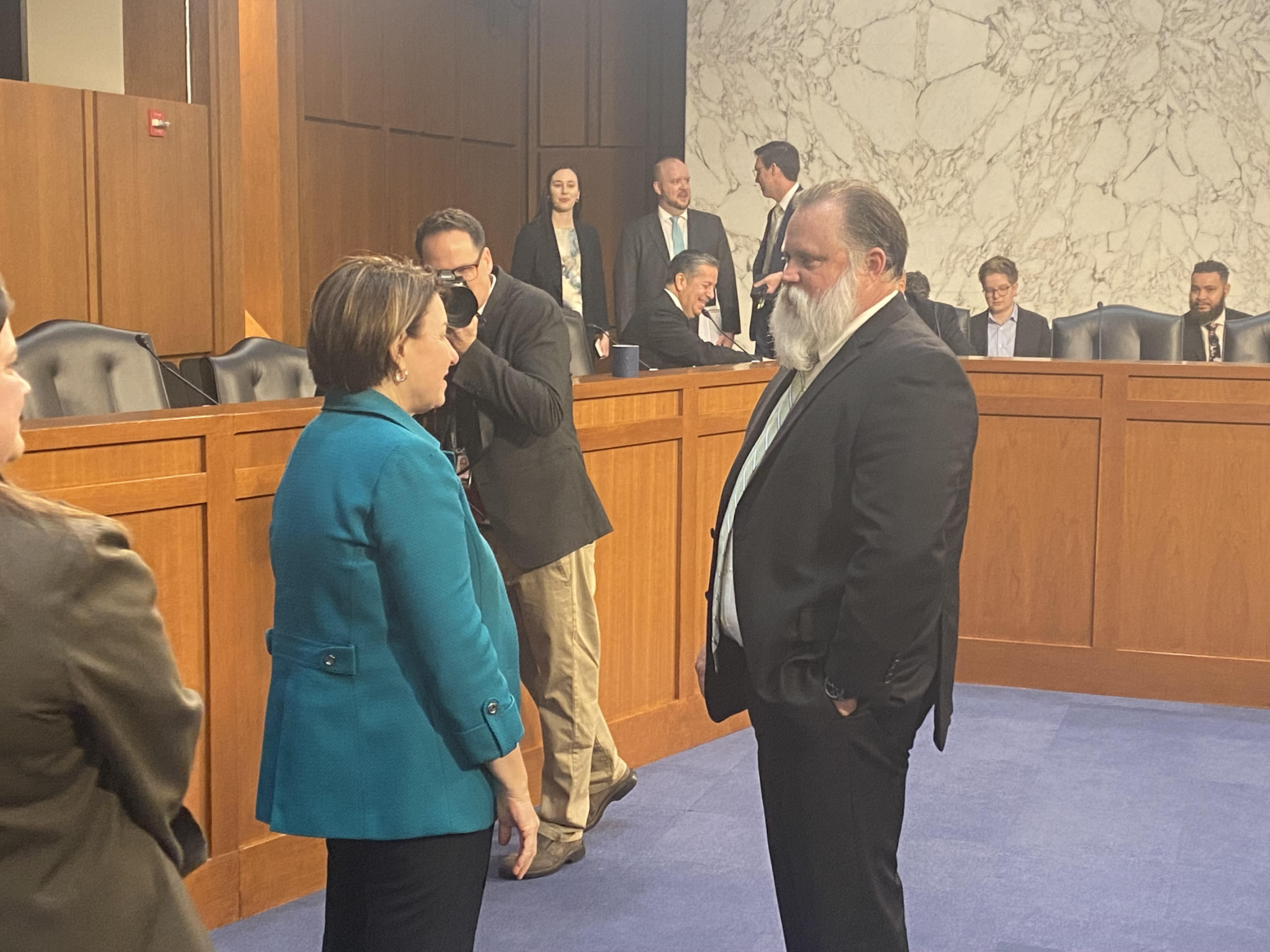Farm groups appealed to the Senate Agriculture Committee on Wednesday for reforms to the H-2A visa program, which allows agricultural employers to hire foreign workers to fill temporary jobs.
“We are desperate for relief,” said Anna Rhinewalt, a sweet potato farmer and council member of the Mississippi Farm Bureau, during a hearing on the farm economy.
The H-2A program sets a minimum hourly wage rate that employers must pay, known as the adverse effect wage rate. The rate is set according to the average earnings of agricultural workers in a given state.
The AEWR “was initially established to protect domestic farm workers from foreign worker wage depression,” Rhinewalt said. But with almost no domestic agricultural workforce to protect anymore, Rhinewalt questioned why the rate had risen so starkly – almost 31% since 2019 in her state of Mississippi, according to Rhinewalt.
“We don't understand why the rate continues to rise so dramatically, using the rationale that it is to protect a domestic workforce that no longer exists,” Rhinewalt said.
U.S. producers are required to advertise the positions to the domestic workforce before the jobs go to foreign employees. But Rhinewalt said 97% of the vacancies remain open after being offered to the American public.
“They simply do not want the jobs,” Rhinewalt said. “A domestic workforce is never again going to be the remedy for ag production in the United States.”
Other producers also lamented rapidly rising wage costs amid worker shortages and other shortcomings in the H-2A program.
“Labor costs remain the biggest threat to the future of the U.S. fresh produce growers,” said Bret Erickson, chairman of the U.S. Government Relations Council at the International Fresh Produce Association. “In Texas, our labor costs have essentially doubled in just five years.”
Erickson also blamed the AEWR, arguing that the rate inflates labor costs “beyond market realities.” Adjusting the formula for calculating the wage rate, Erickson said, could provide some relief. He also suggested that the Agriculture Department appoint a liaison officer to the Department of Labor to ensure farmers are represented in labor policymaking.
Rhinewalt and Ben Etcheverry, president of the New Mexico Chile Association, also questioned the large volume of paperwork and bureaucratic processes involved in using the program, calling the red tape “tortuous.”
Some producers cannot even access the H-2A program, Rhinewalt said, leaving them struggling to find workers. The H-2A program is designed to fill seasonal jobs, according to U.S. Citizenship and Immigration. Accordingly, producers with year-round jobs to fill do not qualify for the program.
“There are a tremendous number of constituents right now who have never even had access to the H-2A program,” Rhinewalt said. “They're suffering without a reliable workforce.”
Some farmers, Rhinewalt said, are opting to shutter operations for some months until their seasonal workers are able to return.
Although immigration matters fall under the purview of the Senate Homeland Security and Governmental Affairs Committee, Sen. Michael Bennet, D-Colo., implored his Senate Agriculture Committee colleagues to provide leadership on these issues and drive legislative efforts to reform the program forward.
Bennet himself has been at the forefront of previous reform proposals. He introduced a bill in 2022, a modified version of the Farm Workforce Modernization Act, to overhaul the H-2A program. The bill built on House-passed legislation to expand the program to fill year-round jobs, modernize the program, and cap some wage increases, among other adjustments, and drew support from the committee’s now ranking member Amy Klobuchar, D-Minn.
Etcheverry also called on the committee to use its influence more broadly to elevate agricultural voices in labor policy discussions. On the campaign trail, President Donald Trump made increasing deportations and cracking down on illegal immigration a key pillar of his campaign. But Etcheverry spoke of the need to find a “a middle ground” to meet the agricultural sector’s workforce needs.
“I have seen many leaders in my rural community who came to this country long ago and enriched it,” Etcheverry said.
“We need to have a functioning and fair immigration system,” he added. “It is my hope this committee can use its influence to elevate the need for ag labor reform.”


